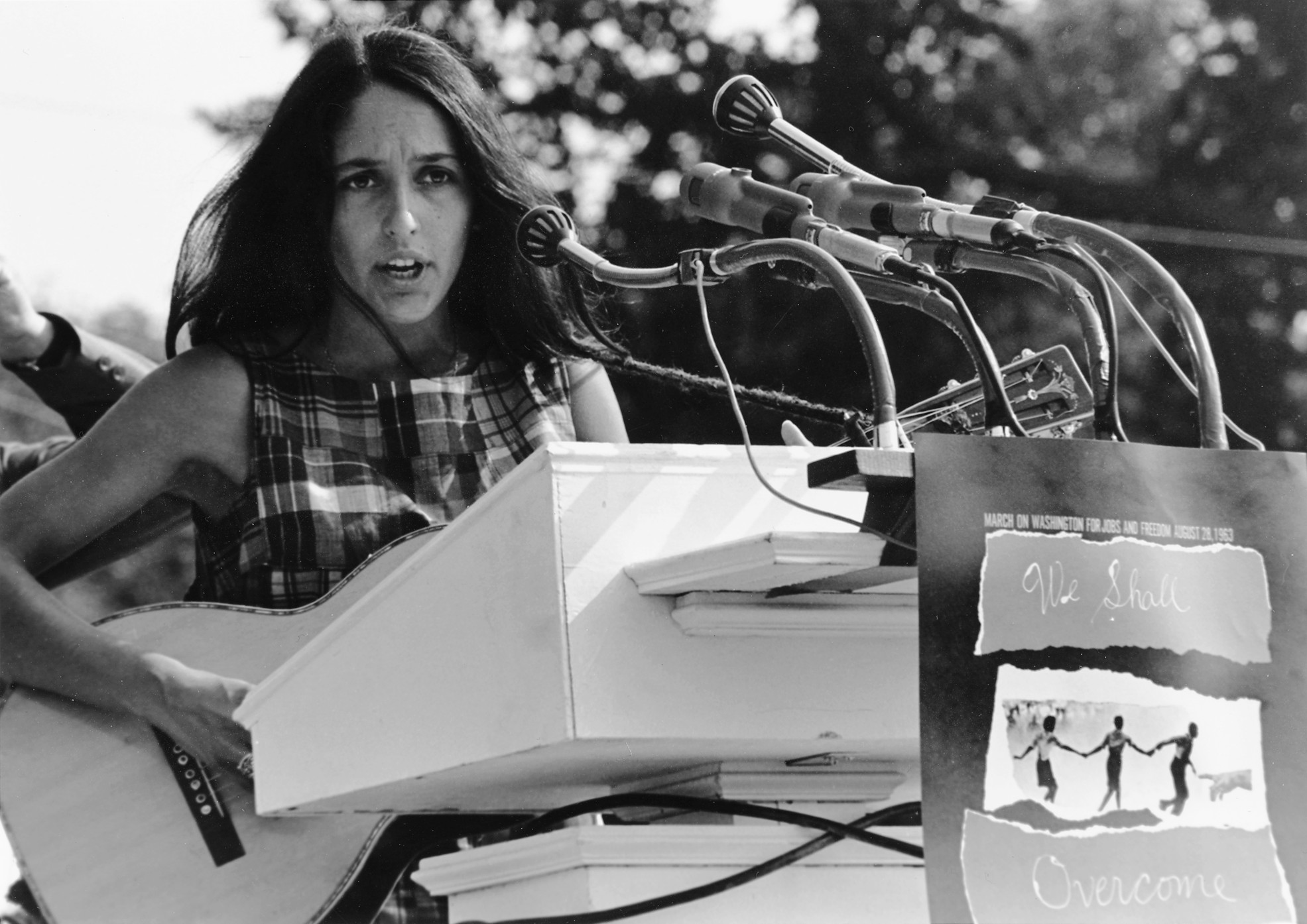Do you know the song We Shall Overcome? Do you know its history with the Civil Rights Movement? I found some books to share it with Hazel. The song itself comes from an old gospel song, I'll Overcome Someday composed by Charles Albert Tindley. In 1945, workers were striking against the American Tobacco Company in Charleston, South Carolina, and the workers sang We'll Overcome (I'll Be All Right) to keep up their spirits. Their melody was closer to I'll Be All Right than to Tindley's version. In 1932 Highlander Folk School opened near Monteagle, Tennessee. Its purpose was to help unions in the South. In 1946 some members of the Charleston union came to Highlander and taught We Will Overcome to Zilphia Horton, Highlander's music director. That same year, Zilphia sang the song to Pete Seeger in New York. Pete Seeger had traveled with Woody Guthrie and later became a part of the folk group called the Weavers. Seeger altered the song to fit his own style of singing and changed the will to shall.
In the 1950s the focus of Highlander shifted from labor rights to civil rights. Many civil rights leaders attended training sessions including Rosa Parks, Dr. Martin Luther King, Jr. and Reverend Ralph Abernathy.
At an anniversary event for the Southern Christian Leadership Conference (SCLC), Pete Seeger sang We Shall Overcome. It was the first time Dr. King heard the song and later found himself humming the tune. We Shall Overcome played a role in many important events of the civil rights movement like the March on Washington in 1963, the Freedom Riders and the Selma to Montgomery marches. At the famous, "I Have a Dream" speech, Joan Baez performed and sang We Shall Overcome.
 |
| Joan Baez 1963, Source: By Scherman, Rowland, U.S. Information Agency. Press and Publications Service. (ca. 1953 - ca. 1978) (NARA - ARC Identifier: 542017) [Public domain], via Wikimedia Commons |
To share this song with Hazel, I found two books at the library. The first, We Shall Overcome: The Story of a Song by Debbie Levy, is the one I read to Hazel. It is a picture book with much information about the song as well as the lyrics throughout it. It tells how the students at sit-ins sang We Shall Overcome while being abused by the white patrons of the restaurants as well as throughout the movement.
The second book, We Shall Overcome: A Song That Changed the World by Stuart Stotts, is more of a resource book for older children. It gives more history and much less pictures. I used it as a reference for this post. It did come with a CD with Pete Seeger singing We Shall Overcome on it.
The best part of this song is that it traveled the world and was sung in other countries like India, East Germany, South Korea, and the list goes on.
Resources for this post: Wikipedia, We Shall Overcome: A Song That Changed the World by Stuart Stotts, We Shall Overcome: The Story of a Song by Debbie Levy, and YouTube
Like my post last week on Thurgood Marshall, I will be adding this to the Multicultural Kid Blogs Black History Month Blog Hop. Feel free to add your own posts on the Civil Rights Movement to the hop!



